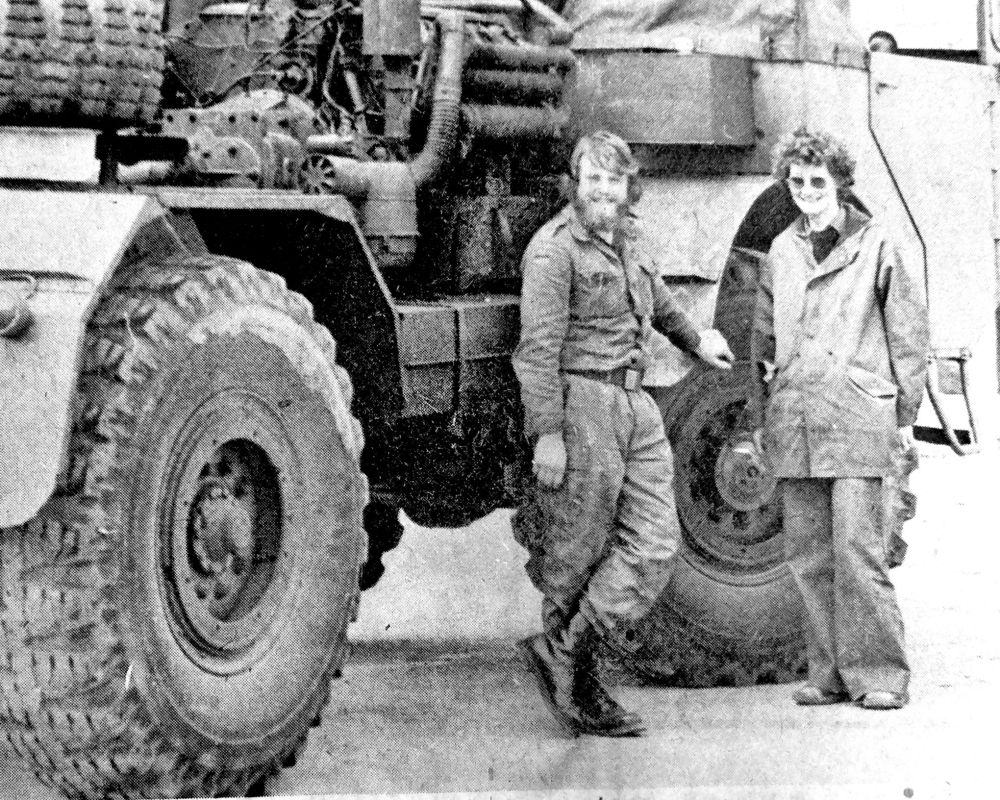CARILLON FLASHBACK: April 28, 1976 – Military vehicles recycled by Germans farming at Dufrost
Advertisement
Hey there, time traveller!
This article was published 08/10/2020 (1726 days ago), so information in it may no longer be current.
The huge four-wheel drive army vehicles many residents saw rumbling through the Southeast earlier this month were not a contingent of army personnel out on maneuvers, but the less than quiet arrival of the area’s newest farmers. A young West German couple have brought the vehicles along with them from Germany for use in a farming operation near Dufrost.
It took Willi and Helge Hesse seven days to drive their equipment from Montreal to their new farm. They will begin farming some 1,600 acres just as soon as the weather will permit.
The young German couple felt that Canada would give them a better chance to farm and began planning their move two years ago. Last May they made the trip here to get their first look at the land they were going to buy.

In Germany, they had 44 hectares (approximately 100 acres), which was a good sized farm in that country, which has 60 million people living in an area about one-fifth the size of Ontario.
Theirs was a family farm operation, with livestock as well as grain, but at Dufrost the couple plans to seed the acreage to wheat and oats, and stick strictly to grain farming.
Land prices in Germany are high ($2,000-$3,000 per acre) and in some areas the hilly terrain makes farming difficult. The four-wheel-drive vehicles they brought from Germany would be far too big to use in farming there, and were purchased just before the trip to Canada. The couple had the machinery shipped to Montreal and they arrived by plane April 15 to begin the long trip west.
Heinrich Brasse and Rudolf Schoenenberg accompanied the couple to help drive the vehicles and set up the farming operation. Schoenenberg will be staying at the farm for the next two months, while Brasse will be leaving shortly for a hitchhiking trip west before returning to Germany.
The trip from Montreal was far from pleasant, according to Brasse, who spoke of constant machine breakdowns, and the shortage of service stations offering diesel fuel. The couple feels the temporary hardships were worth it though, when they consider that shipping the machines by rail would have cost them $15,000, more than they had paid for the equipment in Germany.
What impresses the Hesse’s most so far, in their short stay in Canada, is the open space.
“Here you have big farms and small farm houses, while in Germany the farms are small and the farm houses are big,” Hesse said.
The Hesse’s aren’t the first German immigrants to settle in the area, and before coming to Canada, they bought some of the seed grain they will need this spring from a family who moved here a year ago.
While it is hard to determine how much land in southern Manitoba has been bought by foreign investors, several large parcels have been sold and are being rented to Canadian farmers or as is the case with the Hesse farm, families have come from other countries to work the land.
The Hesse’s own one quarter section of land they will be working and are renting the balance from their German partners in the purchase.
